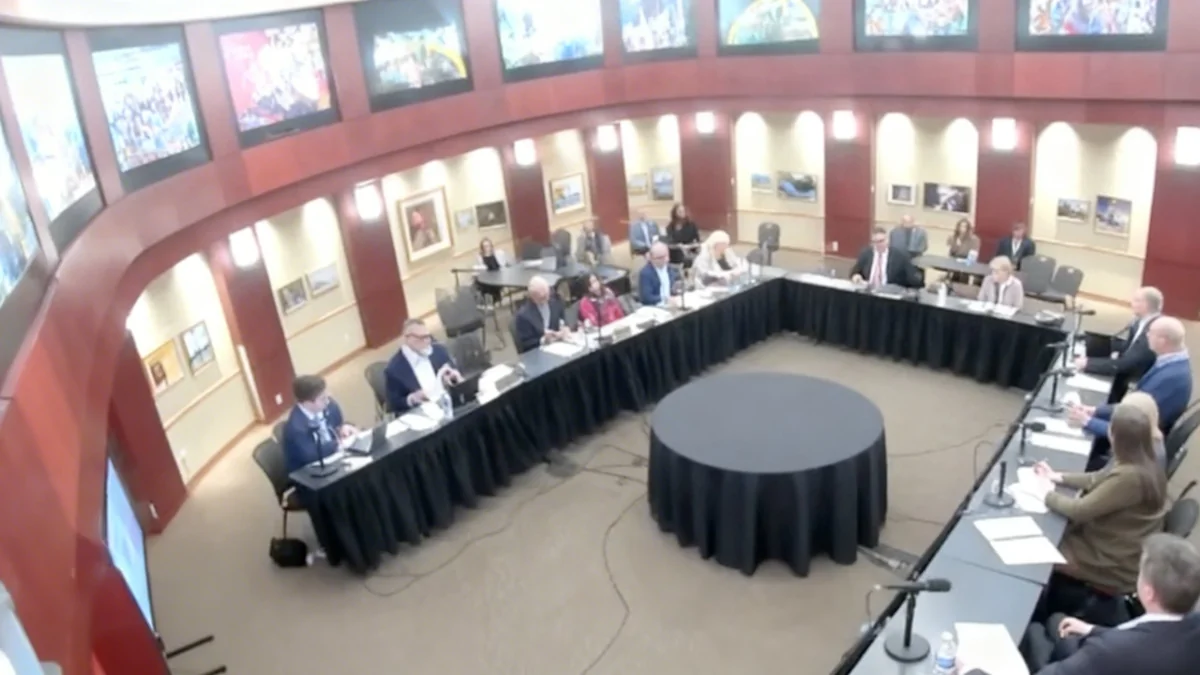A Wisconsin appeals court has dismissed a defamation lawsuit against a conservative parent who criticized a school district employee on social media, ruling that her use of terms like “woke” constitutes protected opinion under the First Amendment. The decision marks a significant moment in the ongoing national debate over parental speech and school policies.
The case involved Scarlett Johnson, a leader in the Wisconsin chapter of Moms for Liberty, and Mary MacCudden, a former teacher and Social Justice Coordinator for the Mequon-Thiensville School District. The ruling reverses a lower court's decision and grants summary judgment in favor of Johnson, potentially setting a precedent for similar disputes across the country.
Key Takeaways
- A Wisconsin Court of Appeals ruled that a parent's social media posts calling a teacher “woke” were opinion, not defamation.
- The lawsuit was filed by a former Social Justice Coordinator against parent activist Scarlett Johnson.
- The court found terms like “woke,” “bully,” and “White savior” to be subjective and not provably false.
- The decision is seen by free speech advocates as a victory for parents wishing to criticize school policies without fear of legal action.
The Social Media Posts at the Center of the Dispute
The legal conflict began in October 2022 when Scarlett Johnson made several posts on social media regarding Mary MacCudden's role in the Mequon-Thiensville School District. Johnson posted a screenshot of MacCudden's LinkedIn profile, which listed her title as “Social Justice Coordinator.”
In her post, Johnson questioned the need for such a position. “Why the hell am I paying for a ‘Social Justice Coordinator’ in my school district?” she wrote. She followed up with more pointed commentary, describing the role as representative of “more woke, White women w/ a god complex.”
In subsequent posts, Johnson used broader terms to describe Diversity, Equity, and Inclusion (DEI) specialists, calling them “woke lunatics” and “bullies” who, in her view, intimidate parents into silence. These posts led MacCudden to file a defamation lawsuit later that year, claiming the statements damaged her reputation.
Understanding Defamation Law
For a statement to be considered defamatory, it must be a false statement of fact that harms a person's reputation. A key defense against defamation is that the statement was an opinion, not a fact. Opinions, which are subjective and cannot be proven true or false, are generally protected by the First Amendment's guarantee of free speech.
A Legal Battle Over Opinion and Fact
After the initial lawsuit was filed, a circuit court allowed parts of the case to move forward. However, Johnson, represented by the Wisconsin Institute for Law and Liberty (WILL), appealed that decision. Her legal team argued that her social media comments were classic examples of protected speech.
WILL Deputy Counsel Luke Berg contended that Johnson’s posts were “run-of-the-mill social media posts” expressing her personal viewpoint on public school matters. The core of their argument was that the language used, while sharp, fell squarely into the category of opinion rather than a verifiable statement of fact.
On Tuesday, the Wisconsin Court of Appeals agreed with Johnson. The majority opinion stated that the terms she used could not be considered defamatory because they were inherently subjective.
“We conclude that Johnson’s statements do not constitute defamation. Thus, we reverse and remand for the circuit court to enter summary judgment in Johnson’s favor,” the appeals court wrote in its decision.
The Court's Reasoning on 'Woke' Language
The court's analysis focused on the specific words Johnson used in her posts. It determined that terms like “bully” and “lunatic” are subjective insults that do not convey factual information. The judges found that what one person considers bullying, another might see as assertive advocacy.
More significantly, the court addressed the politically charged terms at the heart of the case.
The court declared that words like “woke,” “White savior,” and “god complex” are “vague and do not have a clear meaning or definition.” Because these terms lack a single, objective meaning, the court concluded they cannot be proven true or false, a necessary component for a defamation claim.
A Dissenting Opinion
While the majority sided with Johnson, one judge issued a dissent. The dissenting judge argued that because the posts identified MacCudden by name, they might have implied the existence of undisclosed defamatory facts. This judge believed a jury should have been allowed to consider that possibility.
Implications for Parents and School Districts
Following the ruling, Johnson expressed relief and said she hopes the decision empowers other parents. She described the lawsuit as an attempt to silence her and others who are critical of DEI programs in schools.
“I felt I had to fight back in this case,” Johnson stated. “I had to stand up because this would never stop. They’d keep going after parents like me.”
She believes the ruling establishes an important legal protection for parents. “This sets legal precedent,” she said. “Parents everywhere can speak the truth about what’s happening in their schools with a little less fear that they’re going to be dragged into court for frivolous lawsuits.”
Luke Berg of WILL echoed this sentiment in a public statement. “Scarlett, like all of us, has the right to question and criticize her government. The defamation lawsuit against her was meritless and should have been promptly dismissed. We are pleased that the Court agreed, and that Scarlett can put this distraction behind her.”
The ruling could have a chilling effect on similar defamation lawsuits brought by public employees against citizen critics. As debates over school curricula and policies intensify, this decision provides a legal framework that strongly protects subjective, and even harsh, criticism as a form of protected speech. An attorney for Mary MacCudden did not immediately respond to requests for comment on the court's decision.





